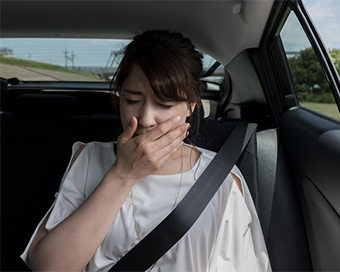Gallery
 PM Modi visit USA
PM Modi visit USA Only the mirror in my washroom and phone gallery see the crazy me : Sara Khan
Only the mirror in my washroom and phone gallery see the crazy me : Sara Khan Karnataka rain fury: Photos of flooded streets, uprooted trees
Karnataka rain fury: Photos of flooded streets, uprooted trees Cannes 2022: Deepika Padukone stuns at the French Riviera in Sabyasachi outfit
Cannes 2022: Deepika Padukone stuns at the French Riviera in Sabyasachi outfit Ranbir Kapoor And Alia Bhatt's Wedding Pics - Sealed With A Kiss
Ranbir Kapoor And Alia Bhatt's Wedding Pics - Sealed With A Kiss Oscars 2022: Every Academy Award Winner
Oscars 2022: Every Academy Award Winner Shane Warne (1969-2022): Australian cricket legend's life in pictures
Shane Warne (1969-2022): Australian cricket legend's life in pictures Photos: What Russia's invasion of Ukraine looks like on the ground
Photos: What Russia's invasion of Ukraine looks like on the ground Lata Mangeshkar (1929-2022): A pictorial tribute to the 'Nightingale of India'
Lata Mangeshkar (1929-2022): A pictorial tribute to the 'Nightingale of India' PM Modi unveils 216-feet tall Statue of Equality in Hyderabad (PHOTOS)
PM Modi unveils 216-feet tall Statue of Equality in Hyderabad (PHOTOS)Hockey India has announced a 54-member core probable squad for the upcoming senior men’s
- Satwik-Chirag return as BAI names 14-strong squad for BWF Sudirman Cup Finals 2025
- Men’s Sr Hockey Nationals to be played in division-based format from April 4
- Mensik denies Djokovic 100th title in Miami final
- KIPG: Son of a vegetable vendor, Bihar’s Jhandu Kumar eyes Worlds, 2028 Paralympics
- Hardik Singh credits hard work and team unity for receiving HI Midfielder of the Year award
Study reveals motion sickness severity Last Updated : 10 Mar 2021 02:50:41 PM IST 
A team of researchers has identified that a person's ability to detect visual cues may help predict the severity of motion sickness symptoms.
They study, published in the journal Entertainment Computing, indicated that, specifically, discomfort was due to a specific sensory cue called motion parallax, which is defined as the relative movement of different parts of the environment."As we tested sensitivity to sensory cues, a robust relationship emerged. It was clear that the greater an individual's sensitivity to motion parallax cues, the more severe the motion sickness symptoms," said researcher Bas Rokers from New York University, Abu Dhabi."It is our hope that these findings will help lead to the more widespread use of powerful virtual reality (VR) technologies by removing barriers that prevent many people from taking advantage of its potential," Rokers added.For the study, the team used VR headsets to simulate visual cues and present videos that induced moderate levels of motion sickness.These findings suggest a number of strategies to mitigate motion sickness in VR, including reducing or eliminating specific sensory cues, and ensuring device settings are personalised to each user, the team said.Understanding the sources of motion sickness, especially while using technology, not only has the potential to alleviate discomfort, but also to make VR technology a more widely accessible resource for education, job training, healthcare and entertainment, they added.IANS Abu Dhabi For Latest Updates Please-
Join us on
Follow us on








172.31.16.186







